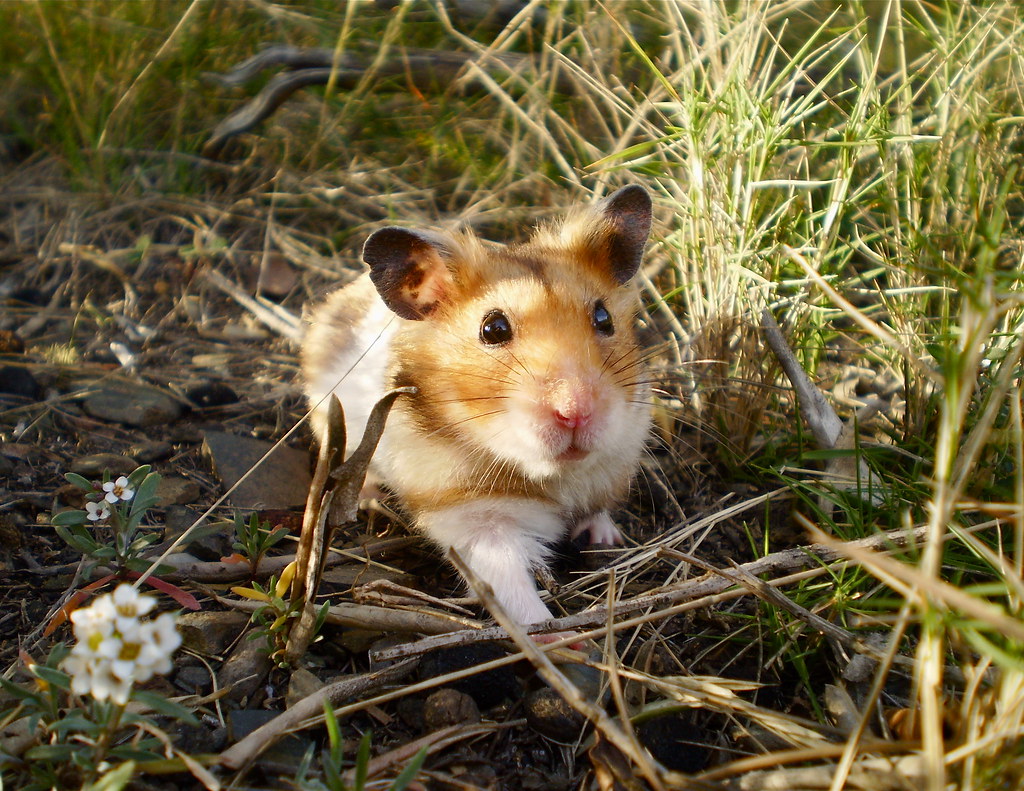Fun Facts
- Hamsters are nocturnal. They will sleep during the day and play in the evenings and during the night.
- They love to hoard their food.
- The word “hamster” comes from the German word, hamstern, which means “to hoard.”
- Their teeth grow continuously, so chew toys or chew sticks are necessary to naturally wear them down.
- They grow to be about six inches long and can live to be 2-3 years old.
Nutrition
Hamsters are omnivores and require a well-balanced diet which includes hamster pellets and small amounts of fruits, vegetables, and grains. Other occasional treats can include nuts, boiled eggs or mealworms. This article has a great list of what your hamster can and can’t eat. However, always consult your veterinarian if you are unsure. Timothy Hay is not nutritionally necessary for hamsters but it is high in fiber which can help maintain a healthy digestive tract and can also be used as hamster bedding.
- Water Bottle
- Food Bowl
- Hamster Pellets
- Hamster Treats
Basic Hygiene
Hamsters are clean animals and tend to go to the bathroom in the same spot. Hamsters can be trained to use a small litter box to make cleanup even easier. Make sure to consistently clean a hamster’s space. Soiled bedding should be removed once a day. The entire bedding should be replaced once a week and the entire habitat should be washed once a month.
- Critter Potty
- Litter
- Habitat Cleaning Solution
Living Environment
Hamsters need a large habitat space so there is room for them to eat, play, explore, exercise, sleep, etc. Hamsters like to sleep in enclosed spaces so be sure to include tunnels or hideaways they can burrow in.
They also need plenty of exercise, so purchasing an exercise wheel or ball would help.
- Small Animal Habitat
- Small Animal Bedding
- Exercise Wheel
- Hamster Hideaway
- Small Animal Chew Toys

